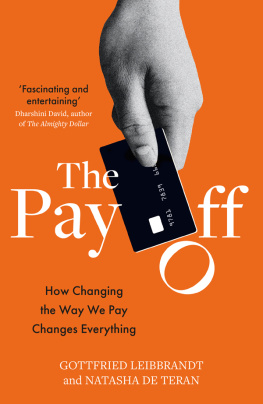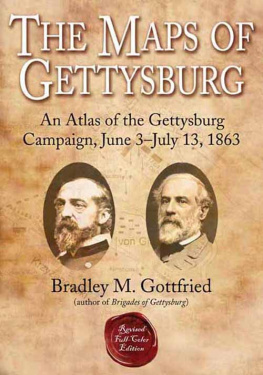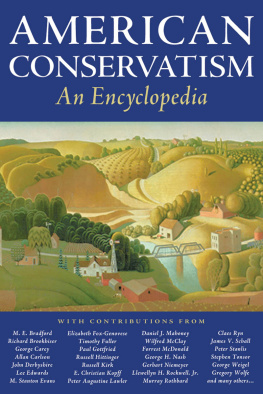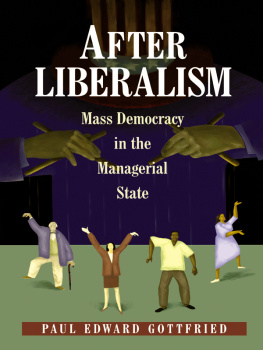Paul Gottfried - The Vanishing Tradition: Perspectives on American Conservatism
Here you can read online Paul Gottfried - The Vanishing Tradition: Perspectives on American Conservatism full text of the book (entire story) in english for free. Download pdf and epub, get meaning, cover and reviews about this ebook. year: 2020, publisher: Cornell University Press, genre: Politics. Description of the work, (preface) as well as reviews are available. Best literature library LitArk.com created for fans of good reading and offers a wide selection of genres:
Romance novel
Science fiction
Adventure
Detective
Science
History
Home and family
Prose
Art
Politics
Computer
Non-fiction
Religion
Business
Children
Humor
Choose a favorite category and find really read worthwhile books. Enjoy immersion in the world of imagination, feel the emotions of the characters or learn something new for yourself, make an fascinating discovery.

- Book:The Vanishing Tradition: Perspectives on American Conservatism
- Author:
- Publisher:Cornell University Press
- Genre:
- Year:2020
- Rating:4 / 5
- Favourites:Add to favourites
- Your mark:
- 80
- 1
- 2
- 3
- 4
- 5
The Vanishing Tradition: Perspectives on American Conservatism: summary, description and annotation
We offer to read an annotation, description, summary or preface (depends on what the author of the book "The Vanishing Tradition: Perspectives on American Conservatism" wrote himself). If you haven't found the necessary information about the book — write in the comments, we will try to find it.
The Vanishing Tradition: Perspectives on American Conservatism — read online for free the complete book (whole text) full work
Below is the text of the book, divided by pages. System saving the place of the last page read, allows you to conveniently read the book "The Vanishing Tradition: Perspectives on American Conservatism" online for free, without having to search again every time where you left off. Put a bookmark, and you can go to the page where you finished reading at any time.
Font size:
Interval:
Bookmark:
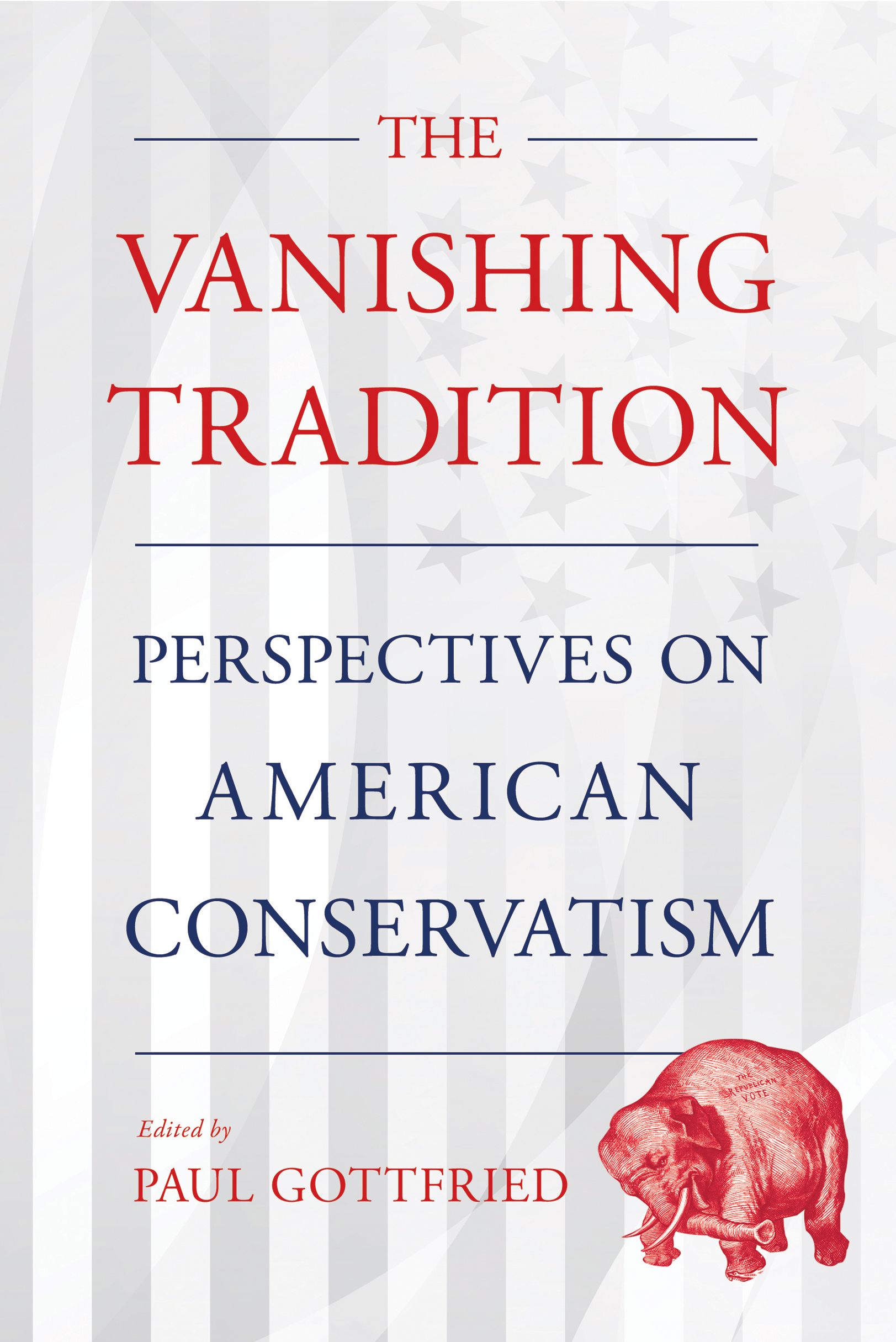
THE VANISHING TRADITION
Perspectives on American Conservatism
Edited by Paul Gottfried
NORTHERN ILLINOIS UNIVERSITY PRESS
AN IMPRINT OF CORNELL UNIVERSITY PRESSITHACA AND LONDON
- Paul Gottfried
- Jack Kerwick
- Keith Preston
- Grant Havers
- Joseph Cotto
- Marjorie L. Jeffrey
- Jesse Russell
- Nicholas W. Drummond
- Richard T. Marcy
- Boyd D. Cathey
- George Hawley
- Paul Gottfried
As editor I wish to acknowledge the assistance of those who made this work possible. First, I would like to thank the acquisitions editor, Amy Farranto, who actively encouraged our project. Amy also provided editorial comments that helped improve most of the contributions to this volume. We can only hope that the sales of this work will justify her faith in our collective endeavor. Jeff Taylor of Dordt College, Jesse Merriam of Loyola University of Maryland, and David Gordon of the Ludwig von Mises Institute also contributed useful feedback; and all of our essays benefited from their careful readings. I would like to acknowledge the boldness of those who wrote for this anthology, particularly those who submitted truly edgy criticisms. The spirited commentaries of the younger writers, who are still making their way up the academic ladder, are especially deserving of honor. I would also like to acknowledge the diligent efforts of my editorial assistant, Andrew Lundner, who patiently formatted each chapter in this volume. Without Andrews help, this anthology would have arrived at the press in a far worse technical state.
Finally, an acknowledgment is owed to my wife, who kept telling me to finish up fast. Mary believed (perhaps rightly) that my senior years should be devoted to more scholarly work than bashing media personalities. I responded by explaining in self-defense that as a political theorist and historian of political movements, I was dealing with something that lies within my wheelhouse. One can sometimes learn more about a subject from examining partisan popularizers than from investigating towering thinkers. Despite disagreement about this project, because of Marys nagging and Amys reminders, it was eventually finished.
Paul Gottfried
The critical studies in this volume examine how the conservative movement presents its own history and how its interpretations depart from factual reality. Much of this self-interpretation has gone unchallenged because it satisfies conservatisms critics almost as much as its defenders. According to this received account, the conservative movement grew out of a once-isolated sect of anti-Communist activists; and as it moved beyond its parochial starting point, it gained in both sophistication and moderation. Established conservatism supposedly overcame its sectarian beginnings as it evolved into a vital part of the political conversation. Today at its best, it supposedly advocates for civility in American politics and for the application of values to our common life. Because conservatives oppose extremism while remaining dedicated to whatever they claim to believe, they insist that they are open to dialogue with others who share their reasoning.
Although the conservative movement, which has expanded as a media presence, admits to having changed over the years, it still offers a problematic self-portrait. Our investigations will address this self-representation by posing two questions. One, does the movements present identity reveal ideological and programmatic continuity with what it was fifty or sixty years ago? Two, does the movement encourage an open, honest discussion of political differences, including with those who may be thought to be on its right? The following chapters demonstrate that the conservative movement has reconfigured itself with remarkable regularity and readily kicked out journalists and intellectuals who have balked at changing party lines.
Two developments are critical for understanding the direction in which the conservative movement has gone, particularly since the 1980s. One is the rise of the neoconservatives as the dominant force within the movement, a process that several of the contributors address in their chapters. A group of influential journalists and fund-raisers who combined strong anti-Soviet feelings with fervent Zionist sympathies, the neoconservatives have enjoyed commanding positions in conservative publications and foundations since the 1980s. One of their first acts in assuming leadership positions in the movement was removing uncooperative employees and activists who resisted their new party line. This consisted of a strongly pro-Israeli form of liberal internationalism in foreign policy with a willingness to move generally toward the left on most domestic issues. The neoconservative model of conservatism became permanent as their ideological and financial influence over the movement proved to be irreversible.
The other development that would shape the movement, and one related to the neoconservative ascendancy, has been a growing flexibility on social questions. There are few, if any, social positions taken by the Left, whether on immigration or LGBT (lesbian, gay, bisexual, and transgender) rights, that the conservative movement has not eventually incorporated. Conservative publicists have made these adjustments while promoting an activist foreign policy against countries depicted as human rights violators. A regular line of attack against Putins Russia and Muslim opponents of Israel is their failure to recognize gay rights, or in the case of Russia, to permit gay pride parades. The Muslim mayor of London was designated in the neoconservative New York Post as a conservative hero because he has striven mightily to accommodate both Zionists and LGBT activists. The fact that major conservative backers have been socially liberal Zionists may throw light on the positions taken by those whom they fund.
Over the years one encounters different forms of American conservatism, some of which have vanished over time and others of which, particularly as we approach the present, have been stifled or weakened by better-funded groups claiming the conservative label. This volume deals principally with the second situation, in which those who previously represented conservative positions succumbed to successful rivals. Here we are not dealing with historically driven displacementsfor example, when the exponents and defenders of archaic visions of order cease to have their ideas prevail under the force of social change or because cataclysms, like the American Civil War or World War I, resulted in social change. Rather, we are focusing on the systematic discrediting of certain ideas and sentiments associated with the Right that were thought to clash with the interests of an expanding business operation.
It is undoubtedly true that at least some of what the present conservative movement rejects is malicious and bigoted. There are indeed white nationalists and defenders of the Third Reich whom one can locate somewhere on the right, if we extend that side of the political spectrum far enough. But setting that group aside, the conservative establishment has unfairly degraded the rest of those on its right. We might note some of the offenses for which an older Right was read out of the movement by the 1990s. Such presumed enormities included opposing the First Gulf War, supporting Patrick Buchanans presidential bid in 1992, and complaining about the influence of the American Israeli lobby.
Font size:
Interval:
Bookmark:
Similar books «The Vanishing Tradition: Perspectives on American Conservatism»
Look at similar books to The Vanishing Tradition: Perspectives on American Conservatism. We have selected literature similar in name and meaning in the hope of providing readers with more options to find new, interesting, not yet read works.
Discussion, reviews of the book The Vanishing Tradition: Perspectives on American Conservatism and just readers' own opinions. Leave your comments, write what you think about the work, its meaning or the main characters. Specify what exactly you liked and what you didn't like, and why you think so.


